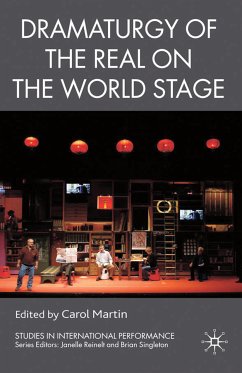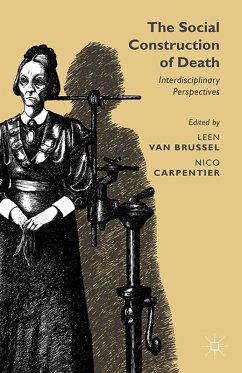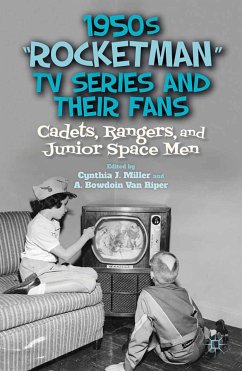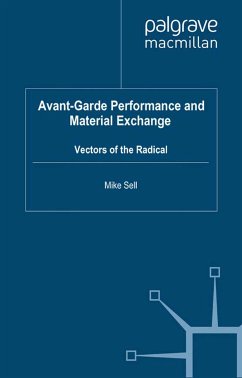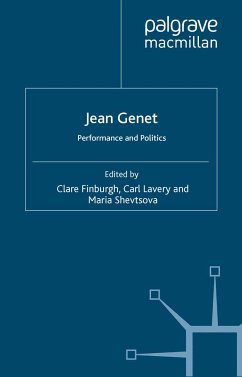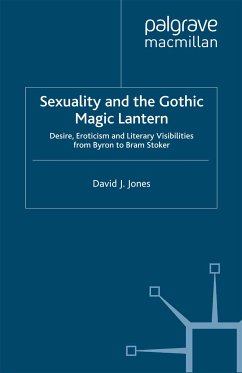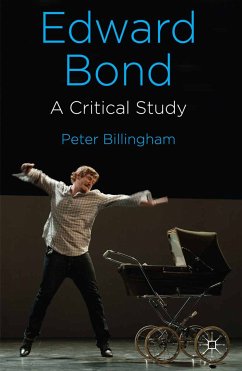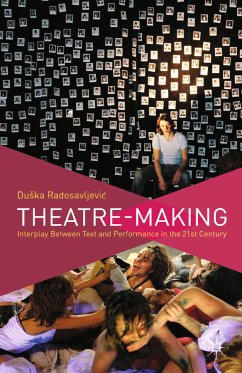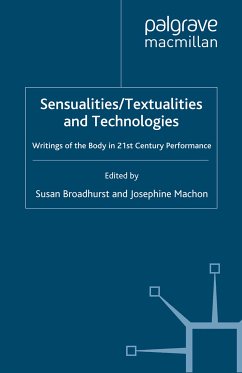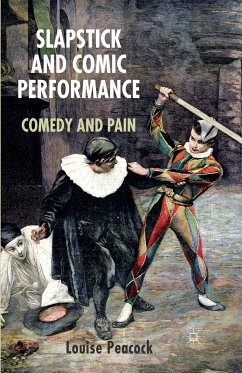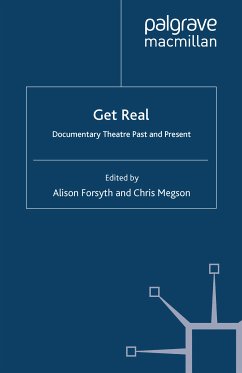
eBook, PDF
Get Real (eBook, PDF)
Documentary Theatre Past and Present
Redaktion: Forsyth, A.; Megson, C.

PAYBACK Punkte
36 °P sammeln!






Over the past two decades, theatre practitioners across the West have turned to documentary modes of performance-making to confront new socio-political realities. The essays in this book place this work in context, exploring historical and contemporary examples of documentary and 'verbatim' theatre, and applying a range of critical perspectives.
Dieser Download kann aus rechtlichen Gründen nur mit Rechnungsadresse in A, B, BG, CY, CZ, D, DK, EW, E, FIN, F, GR, HR, H, IRL, I, LT, L, LR, M, NL, PL, P, R, S, SLO, SK ausgeliefert werden.
- Geräte: PC
- ohne Kopierschutz
- eBook Hilfe
- Größe: 1.56MB
- Text-to-Speech
- E-Mail des Verlags für Barrierefreiheitsfragen: accessibilitysupport@springernature.com
- Keine Einschränkung der Vorlesefunktionen, außer bei spezifischen Ausnahmen
- Keine oder unzureichende Informationen zur Barrierefreiheit
MARYROSE CASEY is a Lecturer at the Centre for Theatre and Drama Studies at Monash University, Australia COLIN CHAMBERS is Reader in Drama at Kingston University, UK ATTILIO FAVORINI founded the Department of Theatre Arts at the University of Pittsburgh, USA ALAN FILEWOD is Professor of Theatre Studies at the University of Guelph, Canada BEN HARKER is a Lecturer in English and Cultural Studies at the University of Salford, UK NELS P. HIGHBERG is Assistant Professor in the Department of Rhetoric and Professional Writing at the University of Hartford, USA YVETTE HUTCHISON is Associate Professor in the Department of Theatre and Performance Studies, University of Warwick, UK ALISON JEFFERS is a Teaching Fellow in Drama at the University of Manchester, UK CAROL MARTIN is an Associate Professor of Drama at Tisch School of the Arts, New York University, USA DEREK PAGET is Reader in Theatre and Television, University of Reading, UK JANELLE REINELT is Professor of Theatre and Performance at theUniversity of Warwick, UK LIBERTY SMITH manages the National Service-Learning Clearinghouse, the world's largest repository of information on service-learning and campus-community educational partnerships CAROLE-ANNE UPTON is Professor of Drama at the University of Ulster, UK
Produktdetails
- Verlag: Palgrave Macmillan UK
- Seitenzahl: 256
- Erscheinungstermin: 8. April 2009
- Englisch
- ISBN-13: 9780230236943
- Artikelnr.: 45963349
"Get Real is an extremely timely and valuable collection of essays that highlights the historical trajectories and developing poetics of documentary theatre and performance. It is a must-read text for arts/humanities academics and students, and performance practitioners." (Kerrie Schaefer, Studies in Theatre & Performance, Vol. 30 (3), November, 2010)
'This is a timely book. Following hard on the heels of the 2006 TDR special issue on documentary theatre, and at a time when public and critical interest in documentary theatre has - in the UK at least - never been higher, the editors have produced a collection of essays that sets out (in their words) 'to re-evaluate the historical traditions' of the genre, and 'to examine the
'This is a timely book. Following hard on the heels of the 2006 TDR special issue on documentary theatre, and at a time when public and critical interest in documentary theatre has - in the UK at least - never been higher, the editors have produced a collection of essays that sets out (in their words) 'to re-evaluate the historical traditions' of the genre, and 'to examine the
Mehr anzeigen
remarkable mobilization and proliferation of documentary forms across Western theatre cultures in the past twodecades'. In this the book, with very few reservations, succeeds...The standard of writing is uniformly high.' - Anthony Jackson, New Theatre Quarterly
'Academic interest in documentary theatre has been slowly growing and this anthology, the first book-length study of the subject in a decade, offers an overdue and distinctive contribution to disciplinary knowledge...Get Real is an extremely timely and valuable collection of essays that highlights the historical trajectories and developing poetics of documentary theatre and performance. It is a must-read text for arts/humanities academics and students, and performance practitioners.' - Kerrie Schaefer, Studies in Theatre and Performance
'Get Real explores reality-based theatre in two main directions. The first presents a historic overview of the hybrid nature of Western documentary theatre since the 1930s... The second direction points to insightful analysis of a range of current practices, with a specific interest in British verbatim theatre.' - Katia Arfara, Theatre Research International
'Like the documentary plays it analyses, Get Real presents a multiplicity of voices and a diversity of viewpoints...the selection and organisation of these essays indicate an acute eye.' - Caroline Wake, Performance Paradigm
'Academic interest in documentary theatre has been slowly growing and this anthology, the first book-length study of the subject in a decade, offers an overdue and distinctive contribution to disciplinary knowledge...Get Real is an extremely timely and valuable collection of essays that highlights the historical trajectories and developing poetics of documentary theatre and performance. It is a must-read text for arts/humanities academics and students, and performance practitioners.' - Kerrie Schaefer, Studies in Theatre and Performance
'Get Real explores reality-based theatre in two main directions. The first presents a historic overview of the hybrid nature of Western documentary theatre since the 1930s... The second direction points to insightful analysis of a range of current practices, with a specific interest in British verbatim theatre.' - Katia Arfara, Theatre Research International
'Like the documentary plays it analyses, Get Real presents a multiplicity of voices and a diversity of viewpoints...the selection and organisation of these essays indicate an acute eye.' - Caroline Wake, Performance Paradigm
Schließen
Für dieses Produkt wurde noch keine Bewertung abgegeben. Wir würden uns sehr freuen, wenn du die erste Bewertung schreibst!
Eine Bewertung schreiben
Eine Bewertung schreiben
Andere Kunden interessierten sich für


